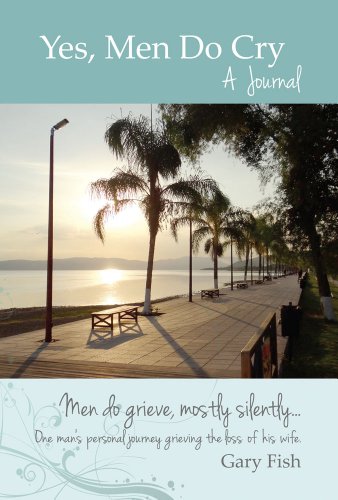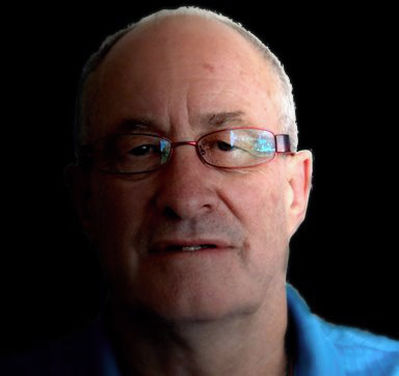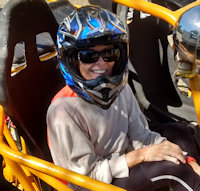Yes, Men Do Cry: A Journal

from amazon.com
One man’s personal journey of grieving the loss of his wife written over a period of three years
January 11, 2002
Oh, Booby, Booby, Booby. This explains it all. I want you back so much yet fully understand this is a fantasy. It must be my way of handling (or trying to) my pain, thinking of the good times, wanting the good times, knowing that now they have to come from what I make. Round and round we go; it’s an intriguing web we weave ourselves. The web breaks, so we have to spin a new one. This I will continue to do until I make a web so strong that I will feel safe, feel confident with myself.
March 2, 2002
Still feeling as though I’m just floating like a feather in the wind. Like the feather I don’t know where I will land. It’s as though I have no control, but I know for sure that this is not so. I’m in complete control; it is me allowing myself to be in this state. I want “companionship” so much, but I’m scared. I want to touch, explore, and feel someone. Selfishly for my own needs, but it’s something I need to happen because I have to justify to myself that I can love again.
Author: Gary Fish

Gary Fish was born in New Zealand and moved to Vancouver, Canada, in 1974, where he met and married Lois. They had two children, Dallas and Nathan. Gary worked in residential construction and as an engineering consultant. He remarried after Lois’s death and has now retired to Ajijic, Jalisco, Mexico.
Reviewed by: Annabelle Price

In his introduction, Gary Fish orients us to his journal which he summarizes as a description of how he coped with the loss of his beloved wife of twenty years. Yes, Men Do Cry is indeed that - a coping journal – but it is so much more. To me, it is a love story. It is a review of the author’s experience of love within his marriage to Lois who died of cancer in October of 2000. The book is filled with coping strategies, thoughts about how to love fully, and wisdom that I presume comes from a combination of reading/studying, experience, and a fair amount of contemplation. Potential reading audiences include men who are grieving, women who are grieving, grief counselors, health care providers, students of thanatology, and anyone who wants to live and love better. This book should be on the short list for any adult, of any age, who wants to be better prepared for end of life - ones own, or that of a loved one.
First – the coping strategies. Of course the journal itself is one of the main strategies the author uses to move himself through the sometimes agonizing experience of grief. The journal was written over the course of the three years following Lois’ death. Initially the entries were daily, then weekly, then monthly, mirroring a pattern of waning of the “hell” (authors word) that acute grief can be. The gradual movement beyond acceptance, and the advance beyond mere survival, are beautifully described, and are reassuring to the reader that resolution of grief does happen, despite the most heart rending suffering. The journal provides a vehicle for two more coping activities: review and reconciliation of past events. More then half of the journal is a review of rich details of their experience together. Intertwined with the review are examples of reconciliation……”but I lied to you for too long. “ Here the author reflects on a period of financial strain and the role of the “male ego” during this period. And “I might be shallow, but the best thing I liked doing was making love to you” as if reconciling that shallow or not - that's what I liked doing – so there! (By the way, my opinion on this subject is …. No…not shallow at all.)
Other coping strategies included talking about feelings of grief and memories with trusted friends; being OK with repeating the same thoughts and feelings time and again – and again – and again; maintaining close relationships with friends who can withstand repeated expressions of loss for as many weeks or months it may take; and taking directly to the deceased person. Much of the journal is addressed to Lois. One of the most helpful strategies Gary employed was the seeking and receiving of support from an expert in palliative care. A nurse named Cheryl, with many years experience in the field, connected Gary to the book Fınal Gıfts by Patricia Kelley and Maggie Callanan. This book helped Gary to fully experience and attend to the special needs of Lois with regards to her communication and awareness of dying. The goal was a “good death” which perhaps allowed for a less agonizing grief.
It was truly enjoyable to read Gary Fish’s thoughts and convictions about how to live and love fully within an intimate marital relationship. Perhaps the clearest and strongest of these was the importance of touch - frequent and in public as well as private. He relates cuddling and kissing “just about every day of our life. “ “…learn how to touch. I promise you it will make your life so much fuller, especially after you lose your partner.” He describes the joy of sex – frequent and loving . He shares his pleasure that his friends enjoy the “nooner,” and his hope that this will continue “until they can't do it anymore and then they can canoodle; this is the ultimate.”)
The wisdom of Gary Fish makes me want to know more about him, and how it is that he knows what he knows, and how he knew so much of it so young I in his life (age 20’s?). Wisdom. The importance of touch. The joy of sex. The impetus to seek out palliative care support. The reading and application of the messages from Fınal Gıfts. The intentional, full embrace of grief. Understanding of the denial-acceptance behaviors of his wife in the last months of her life. The actions that enrich a marital relationship. The sense that grieving begins before the actual loss. Wisdom.
I do disagree with the author on one point. In the introduction, Gary Fish states “I am not a writer.” Gary Fish, you are indeed a writer, and a good one. I hope to see more in print from you during the next several years.
Comments
8 years ago — John StokdijkThank you, Annabelle, for your review of Gary’s book which has given us an opportunity for valued discussions on this and other topics.
Reviewed by: John Stokdijk

Gary Fish introduced himself to me after my Open Circle presentation last October. Something I had said resonated with him. After hearing a little bit about his story we decided to meet again. Over coffee at Black and White on the Ajijic Plaza, I learned much more about Gary and his book, Yes, Men Do Cry, a journal. That led to Gary joining the Ajijic Book Club and his book becoming the selection for February, 2017.
Yes, Men Do Cry, a journal captures the very personal and very intimate journey of grieving by Gary during the three years after the death of Lois, his wife for twenty-five years. It will appeal to some people and not others depending on individual interest in and comfort level with its central focus, grieving death. I will not be surprised if the attendance at the February ABC meeting is low, but I hope not.
I was very intrigued by the book, one that contains very few objective facts. It is full of Gary’s subjective experience of his life, his deep feelings and his innermost thoughts. While reading the book, there were times when I felt like I was living inside of the head of Gary Fish. Seeing on paper the detailed subjective experience of another person over a long period of time is not common. It seemed totally honest, completely authentic.
Perhaps unknowingly, Gary also effectively described depression. His was normal, appropriate for his circumstances. But depression can be abnormal, an illness not triggered by any life events, which I have experienced. There is a vast difference between the internal mental state of a depressed person and what others can observe from their external viewpoint. This gap is not easy to describe but Gary does it well.
From time to time Gary wrote about his efforts to change the palliative care system in Canada. This was of great interest to me because of my own experience with organizations seeking systemic change in the country I love. Sadly his efforts were not successful but his book remains as a useful resource.
While I applaud all efforts for systemic improvements, are they feasible? How much of Gary’s experience helps me, or anyone? Gary and I are quite different. My wife Pat and Lois are quite different. Our grieving of loss, when that time comes, will no doubt also be quite different.
But I agree with Gary that openness and discussion is better than silence and denial.
Lakeside is a retirement community with many elderly people. It is a very good place to live. I share with Gary and others the desire that it also be a good place die.
